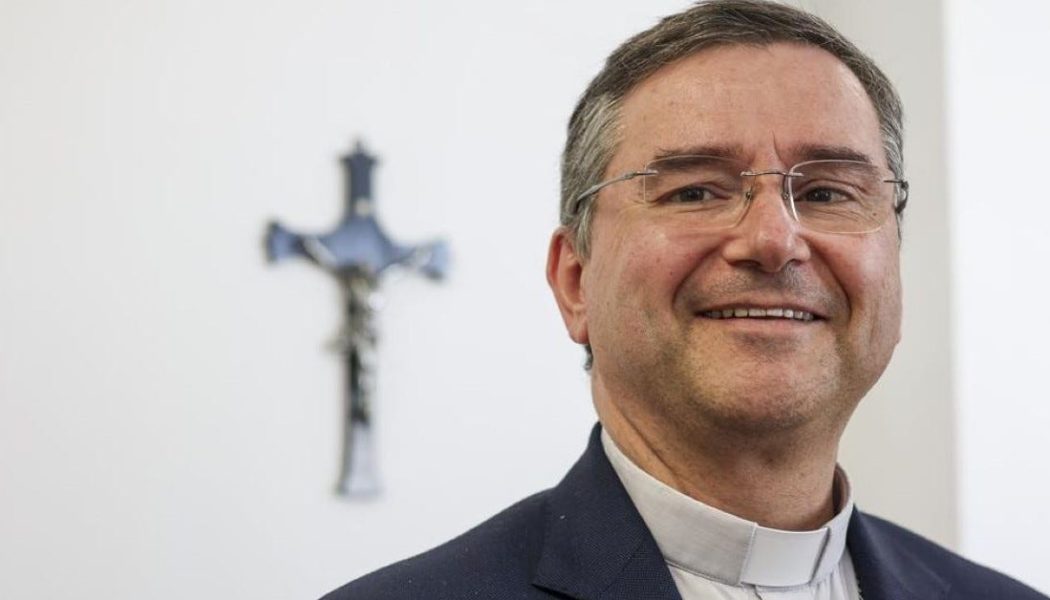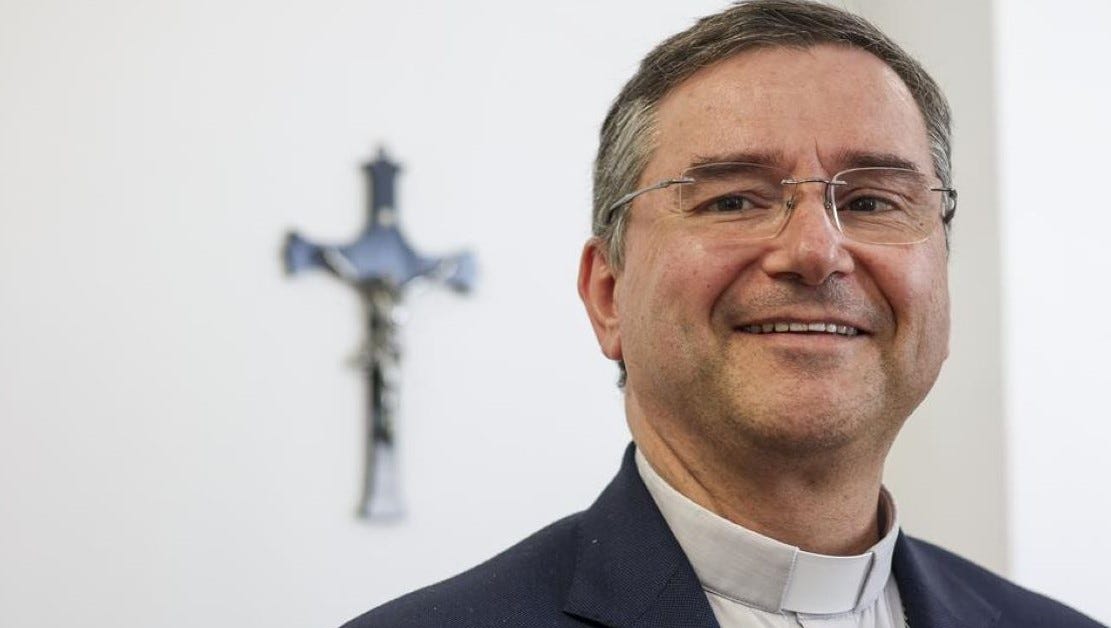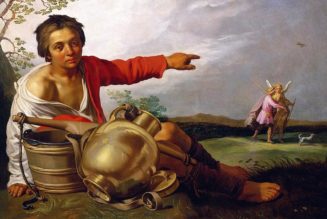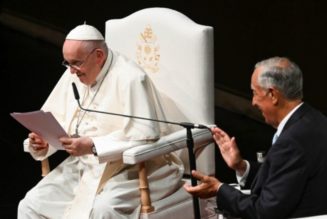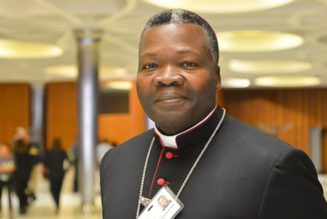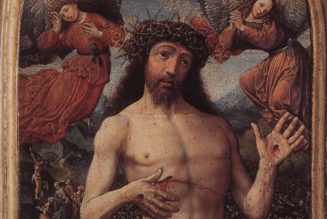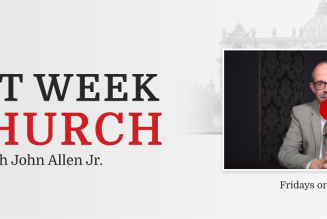In an unusual move, Pope Francis on Sunday named a young auxiliary bishop of the Patriarchate of Lisbon to the College of Cardinals.
The patriarch — Lisbon’s archbishop — is usually made a cardinal, both by tradition and according to Clement XII’s 1737 bull, Inter praecipuas apostolici ministerii, which stipulates that he should be elevated in the first consistory after his nomination.
But elevating an auxiliary to the rank of cardinal is rare even by Francis’ standards, and is unprecedented in Lisbon.
So who is Bishop Américo Aguiar, the Lisbon auxiliary bishop named cardinal? What does his red hat mean for his future, and for the role of Portugal in the Church?
First, is he a raging heretic?
That may not be the question you’d expect to ask of a “prince of the Church,” but it is the one doing the rounds at the moment. The question is especially raised amongst more traditionalist circles, based on something Aguiar said during a recent interview with Portugal’s public television station, speaking about the upcoming World Youth Day, which he is organizing.
“We don’t want to convert these young people to Jesus Christ,” he told the interviewer.
The clip was cut, but the full interview, in Portuguese, is readily accessible, and shows that Aguiar was following up on the idea that the invitation to participate in WYD is extended to all young people, and not just Catholics.
During a telephone conversation with The Pillar, the bishop aimed to clarify his words — or at least explain them.
“Since the first edition of WYD, the popes have been inviting all young people to meet each other, to meet with the pope and to experience the living Christ. That is what we want to happen, and that is what I was trying to get across,” Bishop Aguiar said.
“And the goal is that each person, after going home, might feel called to conversion, to be better, to make decisions for their lives in terms of vocation, family, work, and different projects, but marked by the experience of having met these young people who want to bear witness to the living Christ.”
“But,” the cardinal-elect told The Pillar, “I don’t see WYD as an opportunity for active proselytism, as an event to try and convert everyone who happens to come along.”
“I understand that, taken in isolation, that sentence could have caused some perplexity,” Aguiar said, “and it could be read the wrong way.”
“But over the past four years we have had one common refrain: to bear witness to the living Christ, that this is an encounter with the living Christ. If people only hear what they want to hear, then what can I do?”
Whatever his intentions, the new cardinal’s election has made waves this week.
But while some have suggested he is a kind of progressive maverick, plucked from relative obscurity by Pope Francis, the bishop hasn’t actually come from nowhere.
Instead, he was raised through the local Church’s ranks by the current Patriarch of Lisbon, Manuel Clemente, who is widely considered in Portugal to be a moderate conservative, and a deeply spiritual man.
—
A politician in a cassock
Critics of Aguiar’s election as cardinal have also pointed to the fact that, before his late vocation, he was a local town councilman, and a member of the Socialist Party in the northern city of Matosinhos, and that he worked in the city hall of neighboring Maia for several years.
To consider that fairly, the context matters. Political socialism in Europe today does not have the same connotations and stigma that it does in the U.S., where much of the criticism has come from. That was even more true in the 1990s, when the bishop was working in politics.
Back then the Socialist Party in Portugal had a solid and influential Catholic component, including current secretary-general of the UN, António Guterres. Few people questioned the legitimacy of being both a party member and a Mass-goer.
Bishop Aguiar has never hidden his political background and brief career, and in fact says he is proud of it.
“I am convinced that this sort of public service is an obligation for us all. Politics is a noble pursuit, and should be presented to young people as such”, he told The Pillar.
Of course, you can take the man out of politics, but it is harder to take politics out of the man.
Aguiar is still known in Portugal for his political savvy. He has used it to some effect as he manages preparations for the upcoming World Youth Day in Lisbon — the largest public event in Portuguese history.
For his part, the bishop laughed when asked by The Pillar if he is flattered or offended when people say that he is like a politician in a cassock: “That all depends on the tone with which they say it,” Aguiar replied.
—
Press-friendly
One of Bishop Aguiar’s best-known qualities is the ease with which he deals with the press, especially in times of crisis.
When Patriarch Manuel had a disastrous miscommunication with journalists earlier this year, following a landmark report on clerical sexual abuse in the country, the country saw erroneous headlines saying that pedophile priests in Lisbon would not be removed from ministry.
The scandal lasted five days before Aguiar was called in to speak to the press and set the record straight.
Similarly, when public opinion turned on World Youth Day because of the cost of the stage for the final Mass with Pope Francis, initially estimated at 4.2 million euros, the situation simmered for days, before Aguiar returned to the country from a trip and told a press conference that nobody was more shocked with the price than he, and that the organizers would get to work immediately to bring the price down — which they did by more than 1 million euros.
Aguiar is also known for his often self-deprecating sense of humor. He smiles as he talks, calls journalists by their first names, never appears aggressive or defensive in media appearances.
He is also extremely verbose, which makes him hard to interrupt, a quality he often deploys to steer the conversation toward his comfort zones.
But the other side of the coin is that once Aguiar has settled into his oratorical cruising speed, the bishop tends to say things without thinking them through first.
That could well explain how Aguiar might have come up with a phrase like “we don’t want to convert young people to Jesus Christ” — a phrase which he conceded to The Pillar is open to being “read the wrong way” and causing “perplexity.”
—
Meteoric rise
Some priests in Lisbon told The Pillar that another downside to Aguiar’s communication style is that he doesn’t seem to have any other way of engaging.
While jokes and smiles might go down well on television and during brief encounters, some critics say he can come across as flippant or shallow in more serious settings, such as homilies.
Both priests and laypeople in Lisbon have told The Pillar that as they’ve known him over the years, the bishop does not come across as a spiritual man.
But almost everyone familiar with Aguiar agrees he is a man who gets things done, and that is most likely the reason he has come so far, so quickly.
Aguiar was ordained a priest just 22 years ago, when he was 28 — he’s been a bishop for only four years.
In the current College of Cardinals, only two men rose faster than Aguiar from ordination to obtaining a red hat: Cardinal Dieudonné Nzapalainga, of Bangui, in the Central African Republic, was ordained at 31, became bishop at 45 and a cardinal at 49, only 18 years after ordination. Cardinal Giorgio Marengo, apostolic prefect of Ulaanbaatar, Mongolia, was made a “prince of the Church” at 48 — 21 years after his ordination, and only two years after he became a bishop.
Their own personal qualities notwithstanding, Nzapalainga and Marengo’s elevation to the College of Cardinals can be explained partly by Pope Francis’ effort to see the peripheries better represented in the Church’s central institutions, as illustrated by The Pillar’s recently published analysis, showing that the college has become less European and American during Francis’ pontificate.
But this rationale does not seem to apply to Américo Aguiar, or to Portugal.
A small European country of 10 million, Portugal has never had as many cardinals as it does today. As of the next consistory, the number will have risen to six, four of whom are still of voting age.
For perspective, countries like Austria and Belgium, which have comparable populations, have one cardinal each.
Spain has double the cardinals and electors of Portugal, but four times the population; Germany, with a population eight times the size of Portugal’s, and 20.9 million Catholics, has six cardinals and only three electors; Brazil, the largest Catholic country in the world, with 21 times the population of Portugal, has eight cardinals, six of whom are of voting age.
Ireland has not had a new cardinal since 2007, and Australia has none at all.
The pope’s apparent preference for Portugal seems clear in his schedule, too. In less than a month, Francis will travel to World Youth Day in Lisbon, his second visit to Portugal as pope, while he has yet to visit Spain, Germany, Austria, or the U.K. — and Francis has only visited France to go to the European Union institutions in Strasbourg.
—
Lisbon or Rome? Shepherd or sheepdog?
As Portugal’s star continues to shine in Rome, what could Pope Francis have in mind for Bishop Américo Aguiar?
In Lisbon, speculation is rife over the bishop’s future, once World Youth Day ends.
Patriarch Manuel turns 75 this July, and suffers from ill health. He has already made it clear that he will not be in office much longer. On the one hand, Aguiar seems like a natural successor. It was Manuel Clemente who, while bishop of Porto, first took Aguiar under his wing, securing his transfer soon after he was installed as Patriarch of Lisbon. He then had him made auxiliary bishop. For a while, Aguiar seemed like a shoo-in to replace him.
But predictions of a seamless transition would be premature: Aguiar may be charming and good with the public, but his style has never been popular with the clergy in Lisbon.
“When he was made an auxiliary, he wrote a letter to all of us priests. And most of us thought ‘What’s he doing? He’s not our bishop, that’s not his place,’” one young priest told The Pillar.
In fact, The Pillar spoke to several priests, from young and more conservative-leaning to older and more liberal, and none seemed enthused with the prospect of having Aguiar as their shepherd, citing his lack of pastoral experience – in 22 years he served only two one-year stints as parish priest – and his supposedly shallow spirituality.
One priest put it this way: “If he is made Patriarch [of Lisbon], then it must be the will of God, because nobody else wills it, that’s for sure.”
Asked by The Pillar if he felt that his lack of pastoral experience was a problem, Aguiar saw things differently.
“True, I was only a parish priest for two years. But what have I been doing for the rest of my ministry? I gained a different type of experience, I was a sheepdog, serving under four different bishops. And the role of the shepherd, who walks ahead of his flock, is not more important than that of the sheepdog which keeps the sheep from straying.”
His answer perhaps illustrates both why he is not exactly loved by local priests, and why he has become so prominent.
As a man who gets things done, and who is unwaveringly loyal to his superiors, Aguiar is often asked to do the jobs nobody else wants. And, in a Church where good management does not always abound, he finds himself being asked to wear more and more hats.
Before being asked to head the organization of WYD, Aguiar was already executive chairman of the Church-owned media group, one of the largest in the country, which he has been guiding through a difficult, but necessary, reform.
And until recently, he was also the archdiocesan point man for dealing with cases of sexual abuse, a role in which he is largely believed to have performed notably better than most of his episcopal peers in Portugal.
But another Lisbon priest told The Pillar that believes that not even Aguiar wants to find himself Portugal’s ecclesiastical patriarch.
“He’s good at getting things done, and the patriarchate needs reform, but a patriarch has to be more than a reformer. He knows he won’t be happy as patriarch. The clergy aren’t with him, most of the faithful aren’t either, he’ll be in trouble from day one. He might have had the ambition of being made patriarch so as to get a red hat, but now that isn’t necessary,” the priest said.
Local discontent at the prospect of an Aguiar accession seems to have reached Rome, too. More recently, the information circulating is that Aguiar is actually out of the running to lead the patriarchate, and that his name wasn’t even on the terna — the short list of three candidates from which the pope traditionally picks future bishops.
If that is the case, then the most likely scenario is a future position in Rome, possibly linked to the organization of major events such as World Youth Days, or others.
One thing is certain for Aguiar: Pope Francis likes him and trusts him enough to have broken with convention to make him a cardinal. His immediate future is in Francis’ hands, too, and could be revealed soon enough.
While no one is talking about the bishop as a future pope, the future Cardinal Aguiar will have just over 31 years of voting privileges in the College of Cardinals.
With his knack for politics and organization – and especially if he is transferred to Rome – Cardinal Aguiar could play an important role in shaping the Church in the years to come.
Comments 13
Services Marketplace – Listings, Bookings & Reviews
